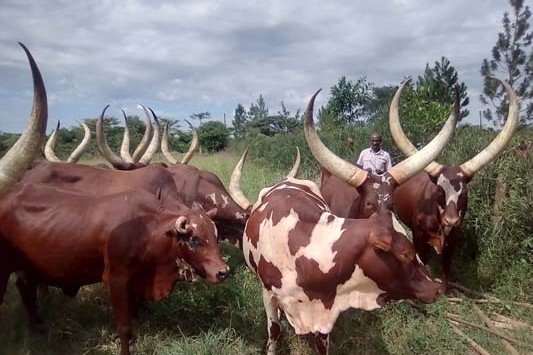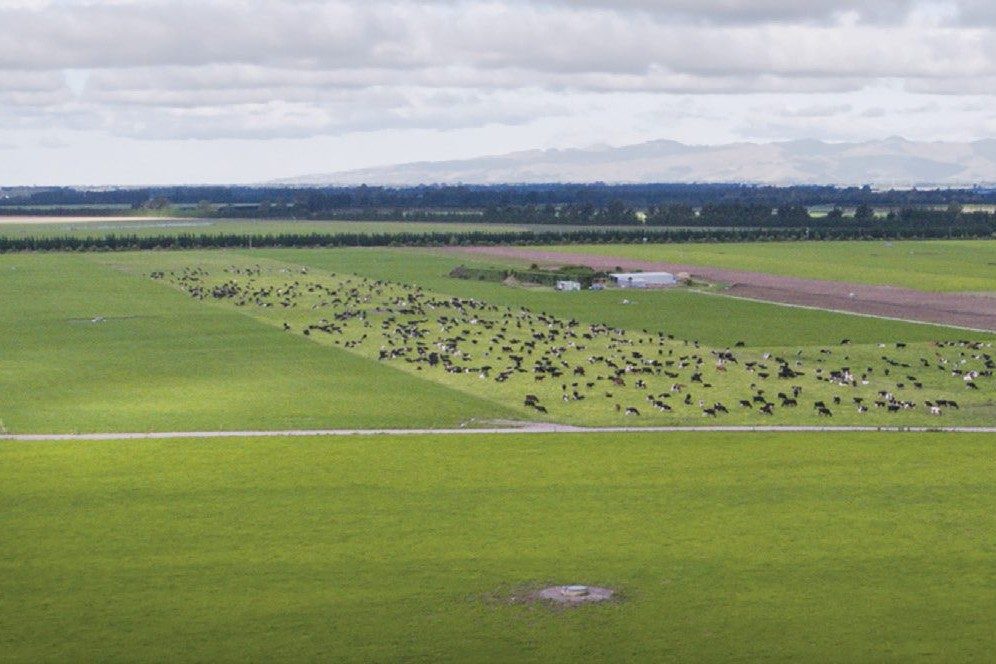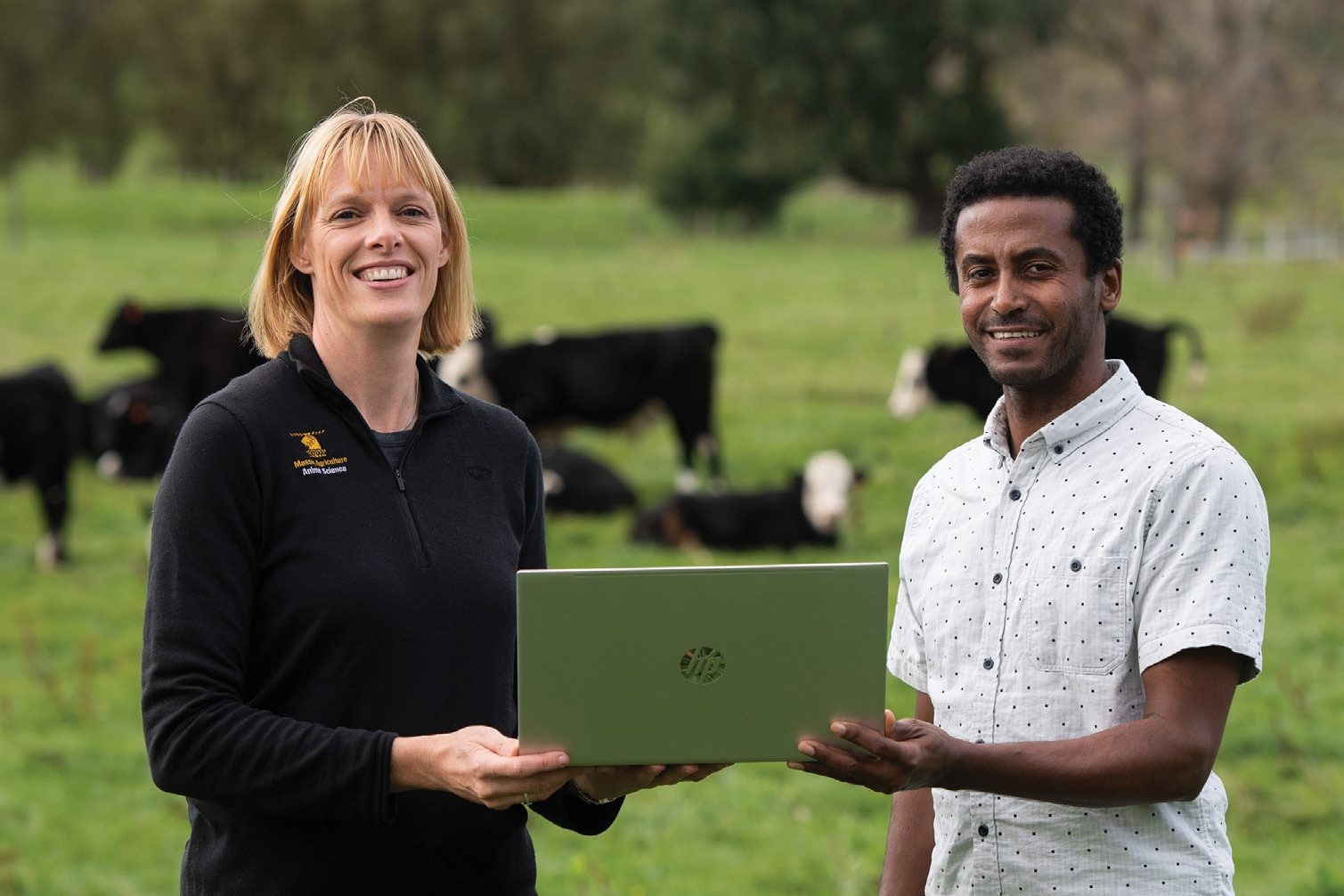By Tony Leggett
New Zealand dairy farmers with autumn-calving herds can tap into a natural calf supplement that is delivering impressive improvements in weight gain and calf health for herd owners across the Tasman.
Innovative biological company Terragen is offering Mylo – a live microbial, liquid feed supplement for calves and cows – in New Zealand from this month (February).
Mylo has a recommended dose rate of 10ml/day and is backed by numerous independent, peer-reviewed and published trials showing calves receiving the product were 8.4% (5.8kg) heavier on average at weaning than non-supplemented calves. That’s equal to a 5:1 return on investment without considering the value created from the heavier weaning weight over the lifetime of the animal.
Terragen NZ general manager Paul Grave says the volume of science supporting Mylo’s potential to improve calf health and weight gain makes it a compelling addition to a calf’s diet. He’s been recruiting staff since late 2021 to support the roll out in NZ planned for both Mylo and a soil conditioner product called Great Land Plus, backed by an equal depth of research data. Great Land Plus has been used in NZ for the past couple of years by a few early adopters and Grave hopes the benefits of biological soil conditioners will become more mainstream as environmental pressure mounts. He aims to get key influencers such as veterinarians, dairy consultants and large scale calf rearing operation owners to take a closer look at Mylo this autumn. It is used widely across the Tasman, boosting growth rates in more than 80,000 calves and improving milk production in 65,000 cows in Australia last year. Mylo contains live bacteria that produce substances which improve the digestibility of the food the calf consumes. The bacteria in Mylo improve fatty acid production – providing energy for the animal – and also form a biofilm barrier in the rumen that reduces the impact of pathogenic bacteria also present.
It creates a more efficient rumen which improves weight gain.
“The numbers really do stack up well. Calves in several trials reached target weights an average of 10 days earlier than un-supplemented calves,” he says.
He expects there might be some hesitancy to adopting a probiotic product like Mylo but is confident the science is robust and proves the efficiency gains are achievable in NZ farm conditions.
We’ve spent time talking to veterinarians and consultants who have been open to the product because there is so much science behind the claims we’re making.”
“We believe the timing is good for New Zealand calf rearers to take a look at Mylo because there is a desire from farmers to do more with less, which is exactly what this supplement will deliver.”
Terragen has built its research over the past decade, employing a total of 11 scientists to develop and test Mylo and the soil conditioning product Great Land Plus.
“There are thousands of strains of probiotic available, but they don’t all deliver the same benefit. Our team of scientists has genome sequenced the strains we are using, and then determined which strains work, and more importantly, how they work together to create a bigger impact.”
“The key to unlocking the performance of probiotics is knowing how the individual strains work together. It’s a bit like putting together a rugby team that works together, rather than a team of all locks or flankers.”
Other trials have been completed by staff at the University of Queensland Veterinary School, Melbourne University and Murdoch University. A trial at the Ellinbank Dairy Research Station in eastern Victoria’s dairy farming region has just ended and data analysis is underway. Another 18-month long study of 145 cows is being undertaken in a working dairy farm in Victoria. The results are expected to be released soon.
“It’s too early to say what the latest Ellinbank trial will tell us, but the important thing here for New Zealand dairy farmers is it is operating a pasture-based system, very similar to what happens here.”
The 18-month trial is also recording many other aspects of cow performance, including somatic cell count, lameness, antibiotic use and methane emissions in all 145 head. Grave is hoping to get the science peer reviewed by NZ scientists, and then consider funding more trial work here to expand it for NZ farm systems.
The plan is to offer Mylo to farmers through both rural retail and veterinary channels.
An upgraded website goes live mid-February and will offer farmers the chance to review the science for themselves.





